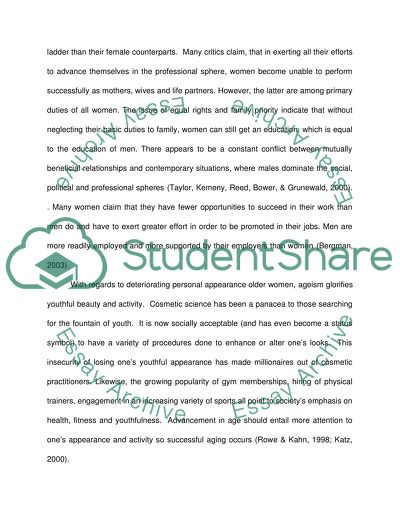Cite this document
(“Gender, Ethnicity and Socio-economic Factors Essay”, n.d.)
Retrieved from https://studentshare.org/sociology/1616970-experience-later-life
Retrieved from https://studentshare.org/sociology/1616970-experience-later-life
(Gender, Ethnicity and Socio-Economic Factors Essay)
https://studentshare.org/sociology/1616970-experience-later-life.
https://studentshare.org/sociology/1616970-experience-later-life.
“Gender, Ethnicity and Socio-Economic Factors Essay”, n.d. https://studentshare.org/sociology/1616970-experience-later-life.


